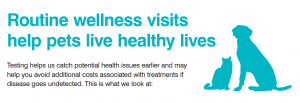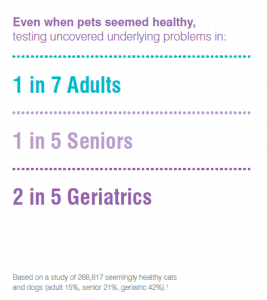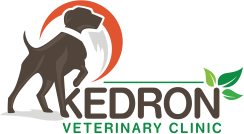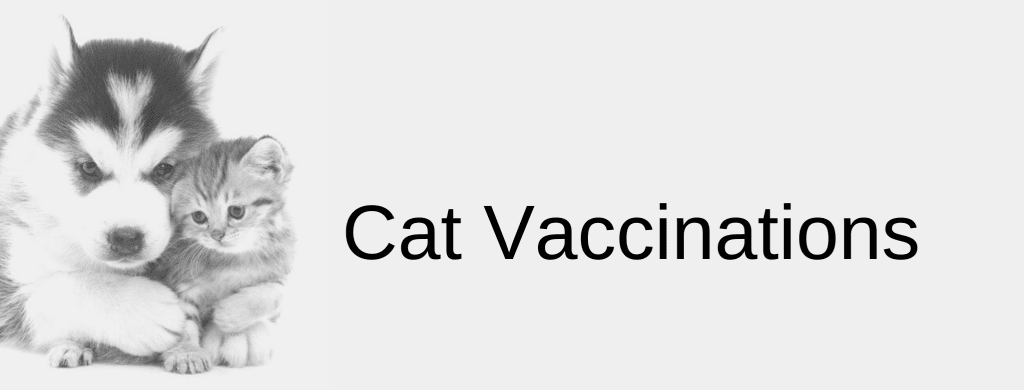Cat Vaccinations in Brisbane
At Kedron Veterinary Clinic, we offer important cat vaccinations to control infectious disease in your pets. It is essential that your kitten or cat is adequately vaccinated to help protect them and the wider pet population.
Kitten Vaccinations
Kittens should receive their first vaccinations between 6 and 8 weeks old. Although they are ‘temporarily’ protected against many diseases by antibodies received through their mother’s milk, these antibodies decline in the first couple of months of their lives. However, until they drop sufficiently, they can also neutralise vaccines. This is why a series of vaccinations is necessary for a kitten.
For maximum protection by vaccination, our vet can discuss a suitable kitten vaccination schedule with you. Below is a guide that will provide some direction towards a vaccination schedule for younger cats.
Age for vaccination
8 weeks
Feline Panleukopenia (Infectious Enteritis)
Feline Calicivirus
Feline Viral Rhinotracheitis
12 weeks
Feline Panleukopenia (Infectious Enteritis)
Feline Calicivirus
Feline Viral Rhinotracheitis
16 weeks
Feline Panleukopenia (Infectious Enteritis)
Feline Calicivirus
Feline Viral Rhinotracheitis
Three vaccinations, 2-4 weeks apart, against Feline Immunodeficiency virus (FIV) are recommended at or after 8 weeks of age.
Adult Cat Vaccinations
Vaccinating your cat stimulates its immune system to produce antibodies against the virus, preventing it from disease. The immunity from kitten vaccination weakens over time and your pet can again become susceptible to disease. Annual health checks and booster vaccinations will provide the best protection for the life of your pet. Below are the diseases we can vaccinate your cat against:
- Feline Panleukopenia
- Calicivirus
- Rhinotracheitis
- Chlamydia
- Leukaemia virus
Three vaccinations, 2-4 weeks apart, against feline immunodeficiency virus (FIV) are recommended for an adult cat if an FIV vaccination has not be provided.
Alongside your vaccination, we recommend blood and faecal screening every year to provide the best care for your pet. Pets age approximately five to seven times faster than humans do. Disease is often insidious and well advanced before the manifestation of clinical signs, underscoring the need for regular screening tests.

Pets are instinctually wired to hide clinical signs of disease from their owners, frequently resulting in a late-stage diagnosis where treatment is costly and often less likely to be effective. As pets age, the incidence and severity of disease greatly increases. Furthermore, senior and geriatric pets may have multiple concurrent disease processes, both clinical and subclinical. Since pets are unable to articulate symptoms, many painful conditions often go unrecognised and left untreated for prolonged periods of time—something that no pet owner wants for their pet.

A full chemistry profile including electrolytes, a complete blood count (CBC) and a complete urinalysis should be part of the minimum database for all preventive care visits and may be recommended on an annual or more frequent basis, depending on the age and the health status of the patient. Performing these tests on clinically normal patients allows clinicians to establish “baseline” values that in turn establish individualised reference interval limits.
Post – Vaccination Care
Following vaccination, your kitten or cat may be off-colour for a day or two or have some slight swelling or tenderness at the injection site. Access to food and water and a comfortable area to rest are usually all that is required for a quick recovery. However, if the response seems more severe, you should contact us.
Common Cat Diseases
At Kedron Veterinary, we vaccinate against the following diseases in cats.
Feline Enteritis (also known as Feline Panleukopenia)
This disease is very contagious and the death rate is high, especially under 12 months of age. Pregnant cats may lose their young or give birth to kittens with abnormalities, quite often with brain damage. Symptoms are depression, loss of appetite, uncontrollable vomiting and diarrhoea, often with blood and severe abdominal pain. The disease is distressing and may shed for up to 6 weeks and persist in the environment for up to 1 year following infection.
The virus can spread through multiple sources such as:
* Direct contact with infected cats as the disease can be shed by all body secretions, particularly faeces.
* Indirect items from an infected cat such as litter tray, bedding and food bowls.
* Infected queens to their kittens during pregnancy.
Feline Respiratory Disease (Cat flu)
Cat flu is caused in 90% of cases by feline herpesvirus (feline rhinotracheitis) and/or feline calicivirus. Feline respiratory disease affects cats of all ages, especially young kittens, Siamese, and Burmese cats. It is highly contagious and causes sneezing, coughing, runny eyes, nasal discharge, loss of appetite and tongue ulcers. Fortunately, the death rate is low except in young kittens, but the disease is distressing and may persist for several weeks. Recovered cats can continue to carry and spread the infection for long periods, and can show signs of the disease again if they become stressed.
Chlamydia (also known as Chlamydophila)
Feline Chlamydia causes a severe persistent conjunctivitis in up to 30% of cats. Kittens are more severely affected by Chlamydia when also infected with “Cat Flu”, and Chlamydia can be shed for many months. Vaccination against cat flu and Chlamydia helps to protect against clinical disease.
Feline Leukaemia (FeLV)
Feline Leukaemia is a serious disease of cats caused by the feline leukaemia virus. The virus attacks the immune system and may be associated with lack of appetite, weight loss and apathy, pale or yellow mucous membranes, vomiting, diarrhoea, reproductive problems, increased susceptibility to other infections, leukaemia and tumours. Many cats may be infected and show no signs at all. About one-third of infected cats will remain chronically infected and may shed the virus in their saliva, tears, nasal secretions and urine. The disease is then spread to uninfected cats by mutual grooming, fighting, sneezing, or even flea bites.
Feline Immunodeficiency Virus (FIV)
Feline AIDS is a disease caused by an infection with feline immunodeficiency virus (FIV) and affects the cat’s immune system. Their natural defence against attack by other diseases may be seriously affected, much in the same way as human AIDS. This disease is not transmissible to humans but is transmitted by bites from infected cats. While some infected cats show no sign of disease, others may display initial symptoms such as fever, loss of appetite, diarrhoea, lethargy and swollen lymph nodes. As the disease progresses, symptoms may occur such as weight loss, sores in and around the mouth, eye lesions, poor coat and chronic infections. Eventually, the immune system becomes too weak to fight off other infections and diseases and as a result, the cat may die.
Call us today to discuss a suitable vaccination regime for your kitten or cat.

